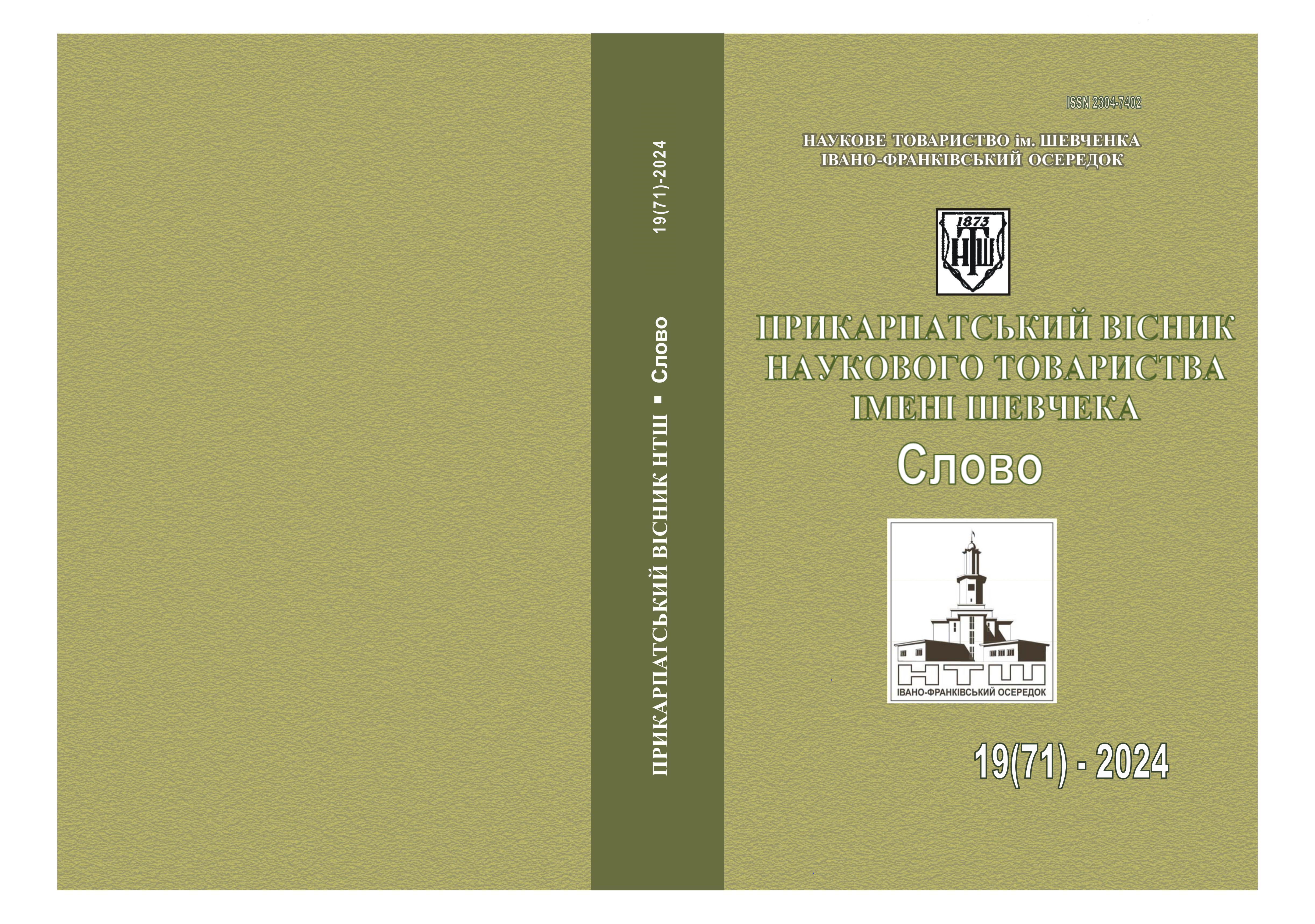THE POLISH LANGUAGE AS A HISTORICAL SOURCE OF BORROWING OF LATINISMS
DOI:
https://doi.org/10.31471/2304-7402-2024-19(71)-409-414Keywords:
Latin language, language contacts, lexical borrowing, Latinism, semantic adaptation.Abstract
The formation of the global information space, social and economic processes aimed at global integration that have appeared as the newest challenges for modern Ukrainian society require more detailed studying of the problem of intercultural communication. It is carried out due to language contacts, and one of its results is the borrowing of lexemes which are heterogeneous by origin. The largest group of foreign vocabulary in European languages is borrowings from the Latin language. In lexicographic sources of the modern Ukrainian literary language more than three thousands of borrowings have been recorded.
One of the most influential mediating languages, a historical source of borrowing of Latinisms was the Polish language. The purpose of our research is to determine peculiarities of reception of lexemes Latin by origin by the Polish language under the influence of extralingual factors and their adaptation in Ukrainian language. On the territory of the Polish-Lithuanian Commonwealth, the Latin language as a part of ancient heritage was used alongside with the national language, to a large extent contributed to its development and improvement, was a means not only for written but also oral communication. Numerous Latinisms in Polish language have become the result of these long-term processes.
As a result of Polish-Ukrainian language contacts that always have had a special socio-historical determination, several hundred Latin words that described different spheres of life of Ukrainians have been borrowed and have been used not only in the socio-political vocabulary but also in dialects. They have passed different degrees of phonetic and semantic adaptation and have indicated a significant influence of European culture on the development of the Ukrainian language.
References
Білецький А. О. Сучасне порівняльно-історичне мовознавство (проблеми та аксіоми). Studia linguistica. Випуск 6/2012. С. 5 – 16.
Яковенко Н. М. Українська шляхта з кінця XVI до середини XVII ст. Волинь і Центральна Україна. Київ: Наукова думка, 1993. 416 с.
Axer J. «Latinitas» jako składnik polskiej tożsamości kulturowej. Tradycje antyczne w kulturze europejskiej – perspektywa polska. Warszawa: OBTA, 1995. S. 71-81.
Keipert H. Das Lateinische in der Geschichte der russischen Sprache. Eurolatein: das griechishe und lateinishe Erbe in den europäischen Sprachen. Tübingen: Niemeyer, 1996. S. 106-128.
Klemensiewicz Z. Historia jezyka polskiego. Cz. 2. Doba średniopolska (od początków XVI wieku do ósmego dziesięcioliecia XVIII wieku). Waszawa: Państwowe wydawnictwo naukowe, 1965. 321 s.
Kopaliński Wl. Słownik wyrazów obcych i zwrotów obcojęzycznych. Warszawa: MUZA SA, 2000. 664 s.
Kuncewicz P. Antyk zmęczonej Europy. Waszawa, 1982. 334 s.
Totius Latinitatis Lexicon. Opera et studio Aeg. Forcellini et in hac editione post tertiam auctam et emendatam a I. Furlenetto. Prati: Aldianis, 1858 – 1875.

